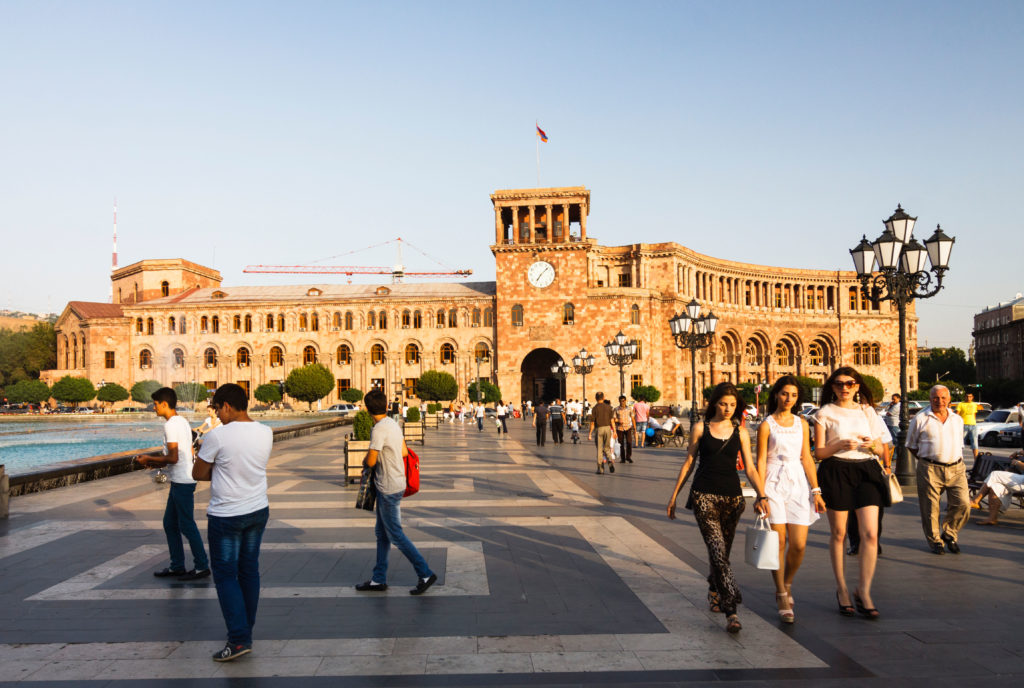YEREVAN
The European Union (EU) pledged to allocate more than 1.5 billion euros to Armenia in the next five years for five key programmes, including support for local businesses, renewable energy, infrastructure and information technology development.
Though Armenia has reported rapid growth in recent years, its economy suffered the double blow of restrictions aimed at containing the COVID-19 pandemic and a six-week conflict between Azerbaijan and ethnic Armenian forces over the Nagorno-Karabakh region and surrounding territories last autumn.
Armenia accepted a Russian-brokered ceasefire to end the bloody conflict which secured territorial gains for Azerbaijan. The country’s economy contracted by 7.6 percent in 2020, mainly reflecting a decline in services and trade. The economy started to show its first signs of recovery in May and the government raised its economic growth forecast for this year to almost twice the rate it previously predicted to 6 percent.
The European Commission has put forward a 2.3 billion euro ($2.72 billion) economic and investment plan for Eastern Partnership countries, with the potential to mobilise up to 17 billion euros in public and private investments “focusing on recovery, resilience and reform.”
The EU plans to 500 million euros in assistance to 30,000 small and medium-sized businesses in Armenia in order “to help create new jobs, develop and modernise businesses, and sustain Armenia’s long-term socio-economic recovery.”
Priority will be given to entrepreneurs who work with nature-saving technologies, especially in the regions, as well as businesses run by women, the European Commission said in a statement.
The second project envisages supporting Armenia’s North-South transport corridor, which provides the country that has closed borders with two of its neighbours – Azerbaijan and Turkey – access to international trade routes and markets. It is planned to allocate 600 million euros for the construction of a new Sisian-Kajaran tunnel in the south.
“Improving transport infrastructure will allow closer ties between the regions, as well as Armenia’s connection with neighbouring countries and the European Union,” the European Commission said.
The third programme provides 300 million euros support for innovative technologies and science, sectors that have grown by around 20 percent in recent years.
“The EU used to support e-government, but now new investments are needed to expand those services to regional and local levels.,” the European Commission said.
The fourth direction envisages the allocation of 80 million euros for supporting Armenia’s southern regions that have underdeveloped infrastructure and have recently been hit by the war with neighbouring Azerbaijan.
“Priority areas may include housing, infrastructure, tourism, agriculture, education, healthcare, renewable energy, and support for local small and medium-sized businesses,” the European Commission said.
One more programme is aimed at improving the environment, energy efficiency and waste management in the capital Yerevan.
The European Union is ready to invest 120 million euros in a “smart city” package, supporting the import of green buses, improving the quality of life, including a number of programmes aimed at waste management and waste treatment in Yerevan.
The proposed long-term policy objectives are to be discussed at the Eastern Partnership summit planned for December 2021.
The Eastern Partnership was launched in 2009 with the aim of strengthening and deepening the political and economic relations between the EU, its member states, and six countries in the bloc’s so-called “Eastern Neighborhood” — Armenia, Azerbaijan, Belarus, Georgia, Moldova, and Ukraine.

